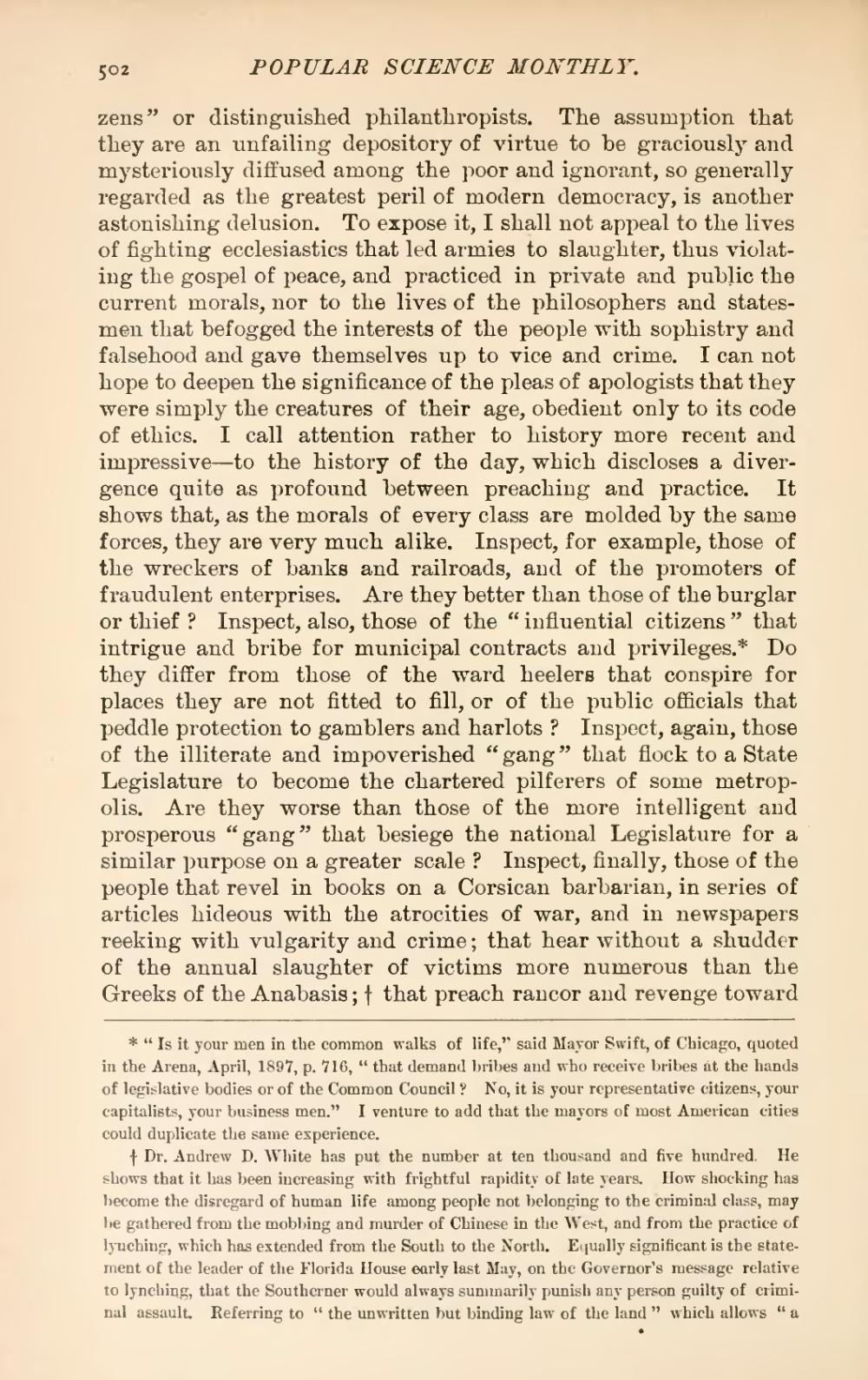zens" or distinguished philanthropists. The assumption that they are an unfailing depository of virtue to be graciously and mysteriously diffused among the poor and ignorant, so generally regarded as the greatest peril of modern democracy, is another astonishing delusion. To expose it, I shall not appeal to the lives of fighting ecclesiastics that led armies to slaughter, thus violating the gospel of peace, and practiced in private and public the current morals, nor to the lives of the philosophers and statesmen that befogged the interests of the people with sophistry and falsehood and gave themselves up to vice and crime, I can not hope to deepen the significance of the pleas of apologists that they were simply the creatures of their age, obedient only to its code of ethics. I call attention rather to history more recent and impressive—to the history of the day, which discloses a divergence quite as profound between preaching and practice. It shows that, as the morals of every class are molded by the same forces, they are very much alike. Inspect, for example, those of the wreckers of banks and railroads, and of the promoters of fraudulent enterprises. Are they better than those of the burglar or thief? Inspect, also, those of the "influential citizens" that intrigue and bribe for municipal contracts and privileges.[1] Do they differ from those of the ward heelers that conspire for places they are not fitted to fill, or of the public officials that peddle protection to gamblers and harlots? Inspect, again, those of the illiterate and impoverished "gang" that flock to a State Legislature to become the chartered pilferers of some metropolis. Are they worse than those of the more intelligent and prosperous "gang" that besiege the national Legislature for a similar purpose on a greater scale? Inspect, finally, those of the people that revel in books on a Corsican barbarian, in series of articles hideous with the atrocities of war, and in newspapers reeking with vulgarity and crime; that hear without a shudder of the annual slaughter of victims more numerous than the Greeks of the Anabasis;[2] that preach rancor and revenge toward
- ↑ "Is it your men in the common walks of life," said Mayor Swift, of Chicago, quoted in the Arena, April, 1897, p. 716, "that demand bribes and who receive bribes at the hands of legislative bodies or of the Common Council? No, it is your representative citizens, your capitalists, your business men." I venture to add that the mayors of most American cities could duplicate the same experience.
- ↑ Dr. Andrew D. White has put the number at ten thousand and five hundred. He shows that it has been increasing with frightful rapidity of late years. How shocking has become the disregard of human life among people not belonging to the criminal class, may be gathered from the mobbing and murder of Chinese in the West, and from the practice of lynching, which has extended from the South to the North. Equally significant is the statement of the leader of the Florida House early last May, on the Governor's message relative to lynching, that the Southerner would always summarily punish any person guilty of criminal assault. Referring to "the unwritten but binding law of the land" which allows "a
